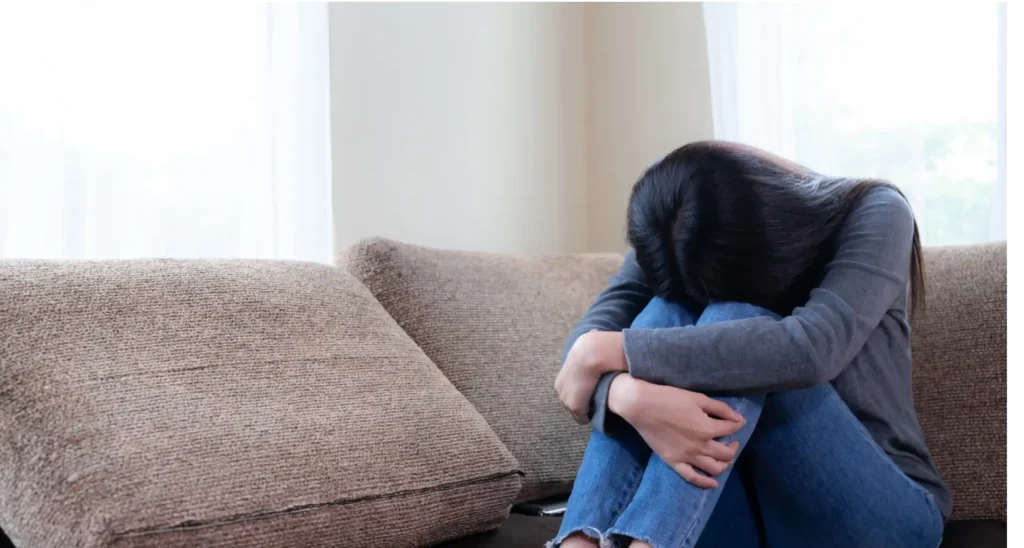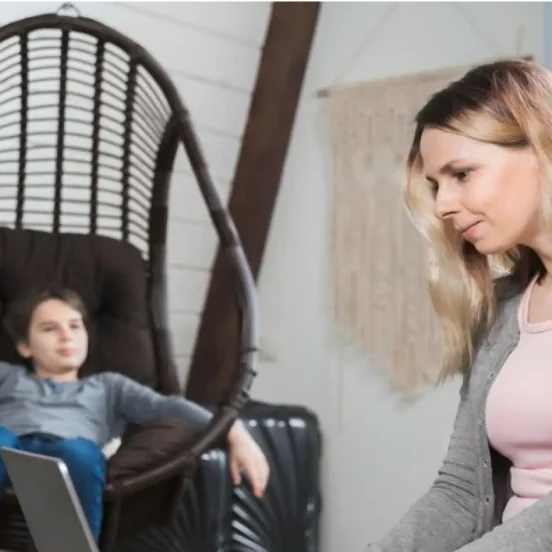I Don’t Feel Like Myself: Understanding and Overcoming the Struggle
I Don’t Feel Like Myself—have you ever woken up and felt like a stranger in your own skin? That unsettling feeling of not recognizing yourself, where your thoughts, emotions, and even actions seem foreign? You’re not alone.
According to recent research, this phenomenon affects a significant number of people, cutting across different age groups and genders. Teenagers and adults alike struggle with this sense of disconnection, with studies showing that about 30% of teenagers and 20% of adults report experiencing this at some point.
Interestingly, the research reveals that women are slightly more prone to these feelings than men, with a ratio of 1.3:1. This pervasive issue can stem from various causes, including mental health challenges, stress, and life transitions, making it a topic worth exploring and understanding.
What Does It Mean to Not Feel Like Yourself?
Not feeling like yourself is more than just having an off day; it’s a pervasive sense of disconnection from your own identity. This feeling can manifest in numerous ways, such as a loss of interest in activities you once enjoyed, difficulty recognizing your own thoughts and emotions, or even feeling like an observer in your own life.
It can feel as if you’re going through the motions without truly engaging with the world around you. This disconcerting experience can be accompanied by physical symptoms like fatigue, changes in appetite, and disrupted sleep patterns.
Why Do I Never Feel Like I’m Being Myself?
Feeling like you’re never truly being yourself can be an incredibly frustrating and isolating experience. There are several potential reasons for this persistent sense of disconnection. Mental health conditions such as anxiety and depression often play a significant role, as they can cloud your thoughts and alter your perception of yourself and the world.
High levels of stress and burnout, whether from work, school, or personal responsibilities, can also contribute, leaving you feeling drained and detached. Major life changes, like moving to a new city, starting a new job, or ending a relationship, can disrupt your sense of stability and self-identity.
Additionally, societal and familial pressures to conform to certain roles or expectations can make it difficult to express your true self. Understanding these underlying factors is crucial in finding strategies to reconnect with your authentic self and start feeling more like “you” again.
10 Reasons Why You Might Not Be Feeling Like Yourself
Feeling disconnected from your true self can be unsettling and perplexing. There are numerous reasons why you might be saying, “I don’t feel like myself anymore.” These factors range from significant life events to underlying health conditions. Understanding these potential causes can help you address them and find your way back to feeling like yourself.
- Life Changes: Major transitions such as moving, starting a new job, or going through a breakup can disrupt your sense of identity.
- Loss: The death of a loved one or the end of a significant relationship can lead to profound emotional upheaval.
- Hormones: Hormonal imbalances, particularly during puberty, pregnancy, or menopause, can impact mood and self-perception.
- New Relationships: Entering a new romantic relationship or friendship can sometimes cause you to adjust your behavior and feelings.
- Stress: Chronic stress from work, school, or personal responsibilities can leave you feeling overwhelmed and detached.
- Identity Clash: Struggling to reconcile different aspects of your identity or feeling pressured to conform can lead to internal conflict.
- Possible Mental Health Conditions: Conditions like anxiety and depression can significantly alter your sense of self.
- Depersonalization-Derealization Disorder: This disorder causes a persistent feeling of being detached from your body or surroundings.
- Bipolar Disorder: Extreme mood swings associated with bipolar disorder can make it difficult to maintain a stable sense of self.
- Obsessive Compulsive Disorder (OCD): The intrusive thoughts and compulsions of OCD can overshadow your true personality and interests.
How Do I Find Myself Again? Healthy Coping Strategies
Rediscovering your true self can be a journey of self-exploration and healing. When you don’t feel like yourself anymore, implementing healthy coping strategies can help you reconnect with your authentic identity.
These strategies involve a combination of self-care, professional support, and mindfulness practices, all designed to nurture your mental and emotional well-being. By taking proactive steps, you can regain your sense of self and find stability amidst the chaos.
Practice Self-Care
Engaging in self-care is crucial for reconnecting with yourself. This includes maintaining a balanced diet, getting regular exercise, and ensuring adequate sleep. Additionally, making time for hobbies and activities you enjoy can help you rediscover the passions and interests that define you.
Remember, taking care of your physical health often positively impacts your mental health, creating a foundation for self-discovery.
Seek Professional Help
If you find that self-care alone isn’t enough, seeking professional help can be a vital step. Therapists and counselors can provide a safe space to explore your feelings and identify underlying issues.
They can also offer strategies and tools to manage mental health conditions such as anxiety, depression, or OCD, which might be contributing to your sense of disconnection. Don’t hesitate to reach out for support when you need it.
Connect with Others
Building and maintaining strong relationships can be incredibly grounding. Talk to friends and family members about what you’re going through; their support can offer new perspectives and remind you of who you are.
Joining support groups or communities with similar experiences can also provide a sense of belonging and reduce feelings of isolation.
Practice Mindfulness and Meditation
Mindfulness and meditation are powerful tools for staying present and connected to yourself. These practices can help you become more aware of your thoughts and emotions without judgment, allowing you to understand and accept them better. Regular meditation can reduce stress, enhance self-awareness, and promote emotional stability, helping you reconnect with your inner self.
Set Realistic Goals
Setting and achieving small, realistic goals can give you a sense of accomplishment and direction. These goals could be related to personal growth, career aspirations, or relationships.
By focusing on attainable objectives, you can build confidence and gradually regain a sense of purpose and identity. Celebrate your successes, no matter how small, as they contribute to your overall journey of self-discovery.
Bottom Line
Feeling like “I don’t feel like myself” can be a challenging and disorienting experience, but it’s important to remember that it’s a common and manageable issue. By understanding the potential causes and implementing healthy coping strategies, such as practicing self-care, seeking professional help, connecting with others, and engaging in mindfulness, you can begin to reconnect with your true self.
Remember, the journey to rediscovering yourself is a gradual process, and taking proactive steps can help you regain a sense of identity and well-being.
FAQs
Question 1: How do I mentally reset my life?
Ans: Mentally resetting your life involves several steps aimed at creating a healthier mindset and lifestyle. Start by identifying and eliminating sources of stress, decluttering your environment, and setting clear, achievable goals. Practice mindfulness and meditation to stay present and reduce anxiety. Engaging in regular physical exercise and ensuring proper sleep can also significantly impact your mental state.
Question 2: Why can’t I fully be myself?
Ans: Struggling to fully be yourself can stem from various factors, including societal and familial pressures, fear of judgment, or past traumatic experiences. Mental health conditions such as anxiety, depression, or personality disorders can also contribute to this feeling. It’s essential to explore these underlying issues, often with the help of a mental health professional, to understand and address the barriers preventing you from expressing your true self.
Question 3: How come I have no sense of self?
Ans: A lack of sense of self can result from prolonged stress, trauma, or identity clashes where external expectations overshadow personal desires and values. Mental health conditions like depersonalization-derealization disorder or borderline personality disorder can also cause this sensation. Reconnecting with your passions, values, and interests through self-exploration and therapy can help rebuild your sense of identity.
Question 4: What does lost myself mean?
Ans: Feeling like you’ve “lost yourself” refers to a disconnection from your true identity, often accompanied by confusion and emotional numbness. This can be triggered by major life changes, chronic stress, or mental health issues. It means you’re struggling to recognize your thoughts, emotions, and behaviors as your own. Rebuilding a connection with your true self involves understanding the root causes of this feeling and implementing strategies to nurture your mental and emotional well-being.
🔥 Popular Blogs This Week
- Impulsive vs. Intrusive Thoughts: Key Differences and Managing Strategies
- ADHD and Narcissism: Understanding the Connection
- I Don’t Feel Like Myself: Understanding and Overcoming the Struggle
- Understanding Childhood Trauma in Adults: A Comprehensive Guide
- Pressure Points for Anxiety and Stress
- Pathological Demand Avoidance and ADHD: A Complete Guide
- What Will Happen if You Don’t Sleep?















